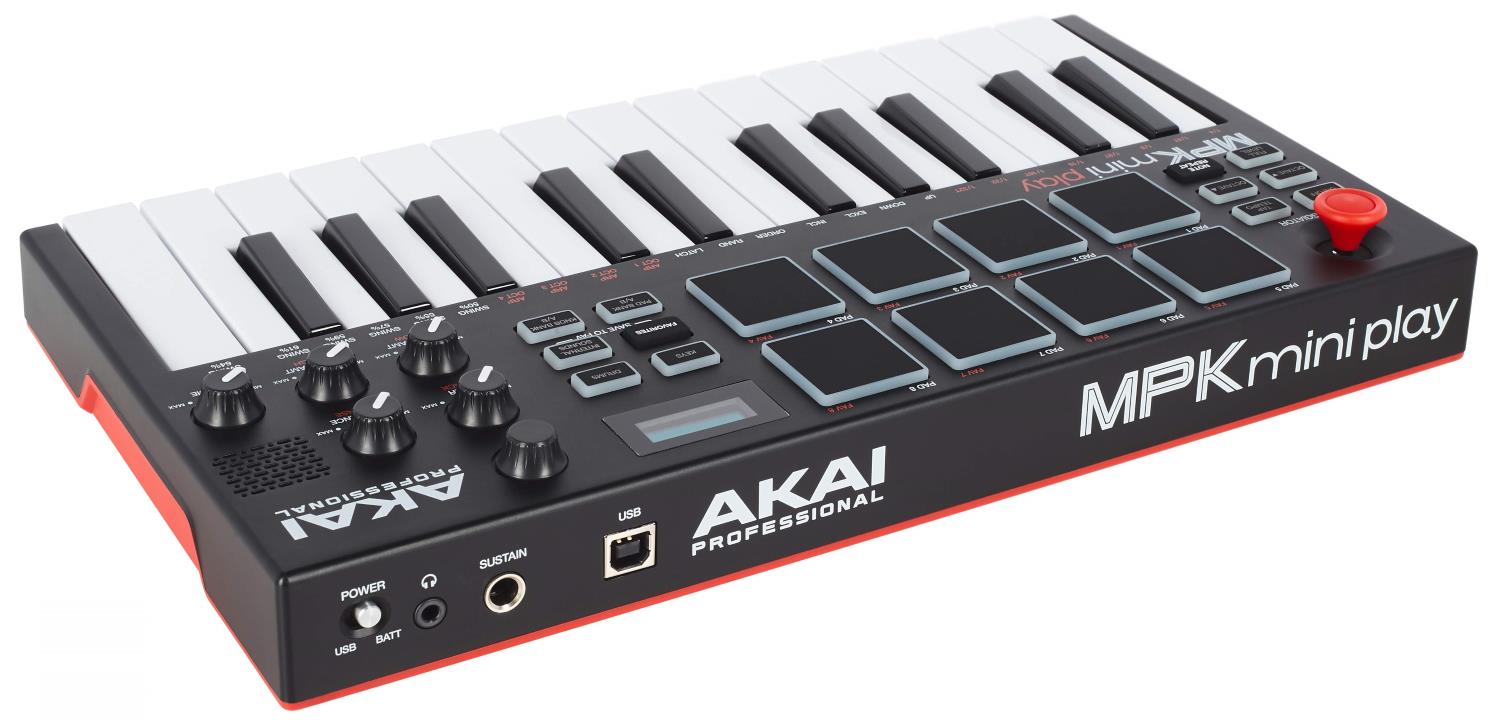
While the overall design isn’t drastically different from previous iterations, the Mk3 has nice, clean lines and an overall “expensive” look and feel. The keys are also velocity-sensitive to still capture a nuanced performance, even if the keys are not quite like a proper keyboard or piano. It’s more responsive than it’s ever been, and the travel feels smoother and more refined. That said, the Akai MPK Mini Mk3’s keybed feels pretty awesome for something this small. Some of that is expected in something miniaturized and very affordable, though. More often than not, they tend to feel cheap and unresponsive-not like a proper keyboard at all. Mini keys are totally hit or miss for most people. Perhaps one of the biggest changes to the MPK Mini is the new and improved keybed utilizing Akai’s Dynamic Gen 2 technology. The Mk3 new rotary knobs spin infinitely so you can make fine adjustments easier than ever before. In prior versions, the eight encoders could only travel so far in either direction, making parameter adjustment a little clunky. Infinity PotsĪ super cool addition to the MPK Mini are what Akai calls Endless Knobs. It’s neat, if not a bit underwhelming, but at this price it’s definitely not a major disappointment. Overall, the layout remains similar to the Mk2. One of the more obvious hardware additions is an OLED display showing various data like arpeggiator settings and more. And let’s be honest-it’s quite welcome when a brand truly refines their work rather than just renaming it or giving it fresh cosmetics! What’s New in the Akai MPK Mini Mk3? Hardware

With the Mini Mk3, Akai managed to take an already fantastic piece of gear and improve it. If you’re not familiar, the basis of the MPK Mini is a 25-key keyboard, eight MPC-style pads, eight knobs to adjust mapped parameters, and an iconic modulation joystick. Speaking of controllers, the legendary MPK Mini is one of the best-selling MIDI controllers ever. Today, Akai Professional continues to develop the MPC line, alongside keyboards, controllers, drum machines, and more. When the instruments division, Akai Professional, opened in 1984, the company started producing keyboards and eventually the famed MPC series samplers/sequencers. Not that they need to! Akai has been an industry-leading hi-fi and electronics brand since its founding in 1946. Akai Continues to Build on Its Legacy with the Mini Mk3


 0 kommentar(er)
0 kommentar(er)
